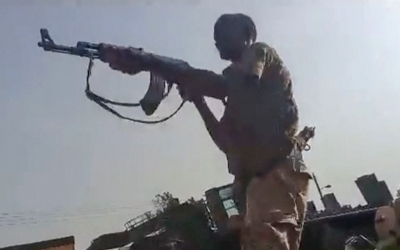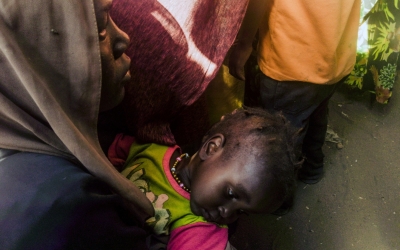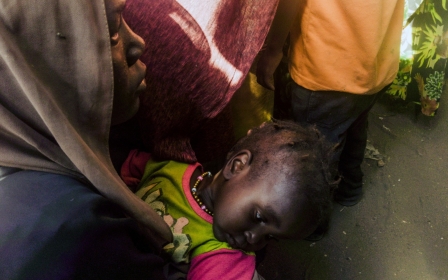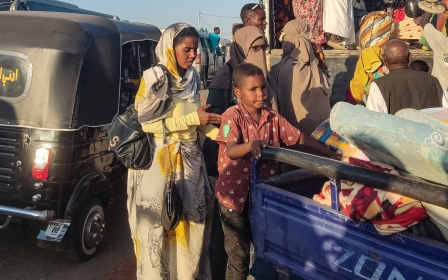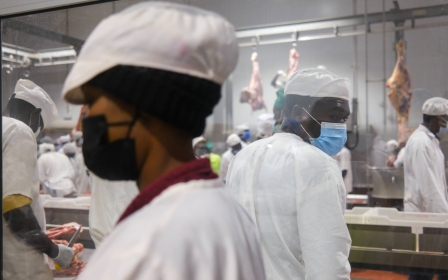What has caused the crisis in Sudan?
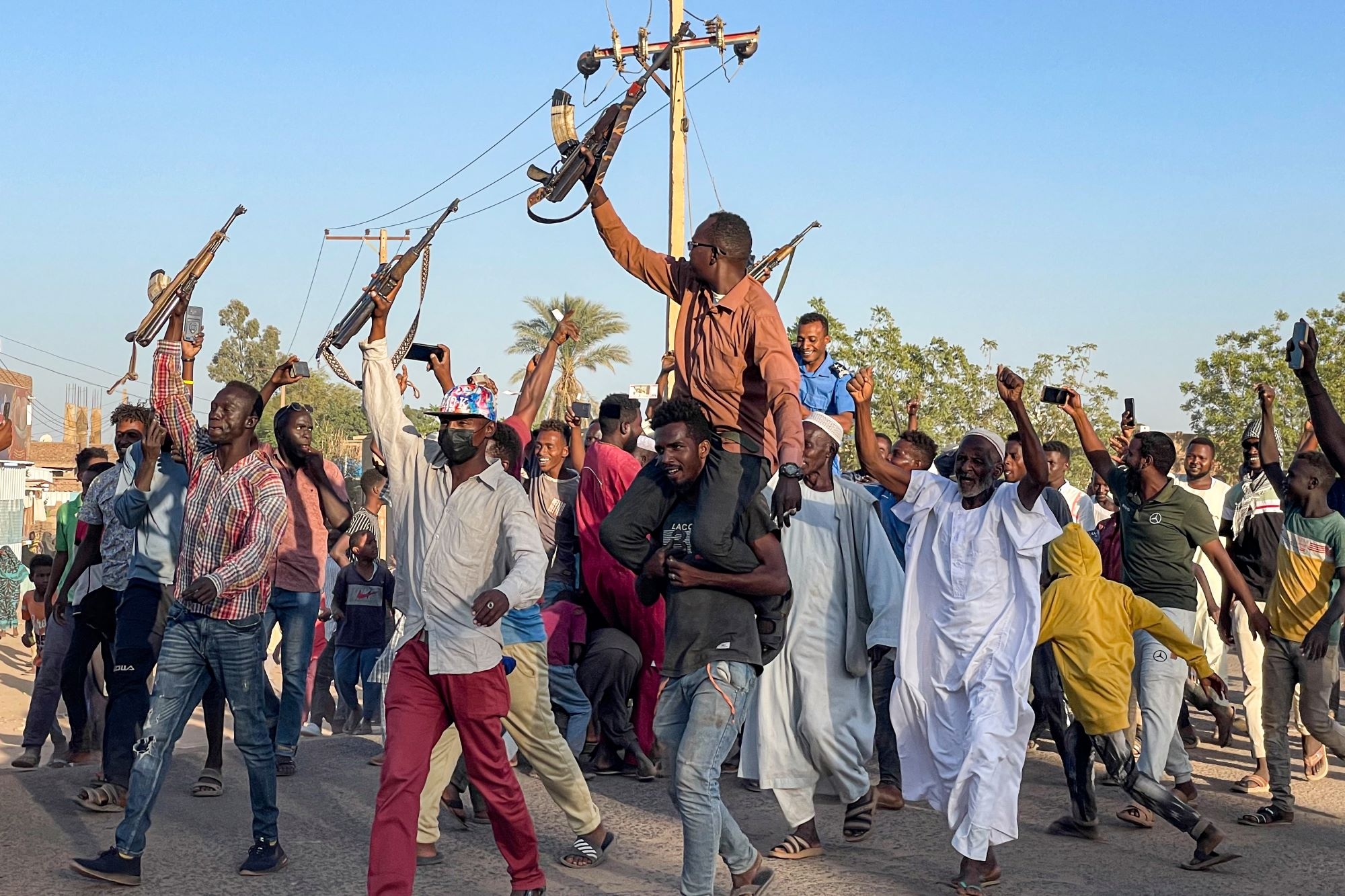
Sudan is currently witnessing a largely underreported humanitarian crisis as a months-long civil war continues to rage.
On Tuesday, Wad Madani, the country's second city, was captured by the Rapid Support Forces (RSF), the paramilitary organisation whose rebellion in April sparked off eight months of fighting.
The Sudanese Armed Forces (SAF), the RSF's erstwhile allies prior to April, withdrew from the city, sparking accusations of betrayal, and leaving the displaced, humanitarian organisations and beleaguered pro-democracy activists fearful of reprisal.
Seven million Sudanese, out of a pre-war population of 45 million, have been forced from their homes, including more than a million who have fled abroad to neighbouring countries, while the fighting has left more than 12,000 dead so far.
How did the current violence in Sudan begin?
New MEE newsletter: Jerusalem Dispatch
Sign up to get the latest insights and analysis on Israel-Palestine, alongside Turkey Unpacked and other MEE newsletters
In 2019, longtime ruler Omar al-Bashir was deposed in a coup following mass protests against his decades of authoritarian rule.
Over the next two years, pro-democracy activists, politicians and trade unionists attempted to thrash out a new future for the country, establishing a new civilian-led government while negotiating with the country's powerful military, various armed rebel groups and the RSF, a paramilitary organisation established in 2013, but which grew out of the Janjaweed militias that gained notoriety for violent abuses in the Darfur region in the 2000s.
In 2021, however, the SAF and RSF overthrew the civilian government and General Abdul Fattah al-Burhan became de facto ruler of the country.
Facing continuous pressure from international actors, a reinvigorated street movement and armed groups, the SAF eventually publicly agreed to a plan to hand over to a civilian government in 2023.
However, tensions had already begun to rise between Burhan and RSF leader Mohamed Hamdan Dagalo, better known as Hemeti, on a number of issues - chief among them the plan to integrate the RSF into the Sudanese military within two years.
On 15 April, the RSF began attacking SAF positions in the capital Khartoum and other areas of Sudan, sparking off a bloody conflict which has continued to this day.
What is happening now in Sudan?
In recent weeks, the RSF has been pushing its troops across much of Sudan, consolidating their power in the Darfur region and capturing new territory stretching east towards the capital Khartoum.
Eastern and northern Sudan remains under SAF control, but the fall of Wad Madani, in the central el-Gezira state, is a major blow.
The RSF takeover of the city has pushed 300,000 people to flee already, while the World Food Programme (WFP) announced on Wednesday it had temporarily suspended food assistance in some parts of el-Gezira, despite supporting more than 800,000 people in the state.
The city had operated as the chief base of operations for several humanitarian organisations and thousands of displaced people from Khartoum, as the capital remains engulfed in fighting.
Although the RSF hailed the city's "liberation" and promised to protect the populace, many are deeply fearful of reprisal from the group, which has been accused of widespread human rights abuses, massacres and mass sexual assault, particularly in the Darfur region.
In June, MEE reported on atrocities carried out by the RSF in the West Darfur state capital el-Geneina, with 1,500 people killed in just over two months.
MEE also reported in November that at least 1,300 people, mostly civilians belonging to the Massalit tribe, were slaughtered in West Darfur's Ardamata over three days last month by the RSF and its allied Arab militias, with rights groups accusing the group of killing, raping women, looting and torching homes.
It all adds up to a spiralling humanitarian disaster and what the UN refugee agency's spokesman William Spindler on Tuesday called a "deepening forced displacement crisis".
The UN has described the country's healthcare system as "already stretched to the limit" with over 70 percent of hospitals in conflict-affected areas out of service and "facilities in non-conflict-affected states overwhelmed by the influx of displaced people".
What is the future for Sudan?
Pro-democracy groups in Sudan - who have looked on with despair as their two opponents battle each other across the ruins of the country - have attempted to keep their activities going.
Resistance committees, a network of pro-democracy activists, have documented abuses by the RSF and SAF. On Wednesday, they accused the RSF of ransacking homes and shops in Wad Madani, stealing gold, cash and vehicles. They called on the international community to intervene to put an end to "blatant human rights violations".
Women's rights defenders in Sudan have also been active, attempting to document the brutal violence so many women in the country have endured in recent months.
Last month, Sudanese and African women's rights activists convened a meeting in Kenya, headlined the Feminist Peace and Solidarity Conference, in which they called attention to the specific use of sexual violence in the Sudan conflict.
"In solidarity with the women of Sudan... [we] commit to continuing our activism and advocacy for the rights and well-being of Sudanese women, calling for a
global response that is both immediate and sustained," read a statement released in the wake of the conference.
The US has imposed sanctions on a number of military leaders in Sudan on both sides of the conflict, and has called on the warring parties to "protect civilians, hold accountable those responsible for atrocities or other abuses, allow unhindered humanitarian access, and negotiate an end to the conflict".
Regional powers, however, have continued to boost different sides in the war. Egypt has thrown its weight behind Burhan, while the Burhan-led government issued an order last week to expel a number of the UAE's diplomats in the country due to their government's support for the RSF.
Meanwhile, a gathering of African leaders held in Djibouti agreed on a formula plan on 9 December for a ceasefire and political talks.
Whether this will lead to anything - and whether the pro-democracy campaigners who took to the streets in 2019 demanding a freer, more open and stable Sudan will ever have their wishes fulfilled - remains to be seen.
Middle East Eye delivers independent and unrivalled coverage and analysis of the Middle East, North Africa and beyond. To learn more about republishing this content and the associated fees, please fill out this form. More about MEE can be found here.


